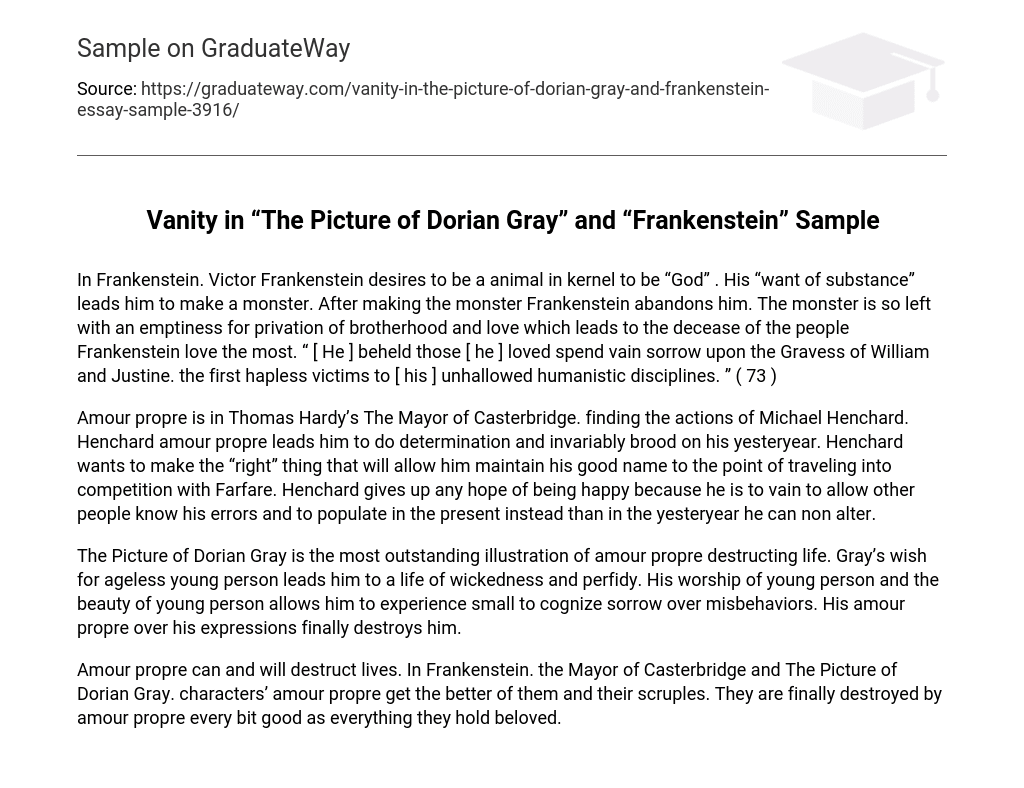In Frankenstein. Victor Frankenstein desires to be a animal in kernel to be “God” . His “want of substance” leads him to make a monster. After making the monster Frankenstein abandons him. The monster is so left with an emptiness for privation of brotherhood and love which leads to the decease of the people Frankenstein love the most. “ [ He ] beheld those [ he ] loved spend vain sorrow upon the Gravess of William and Justine. the first hapless victims to [ his ] unhallowed humanistic disciplines. ” ( 73 )
Amour propre is in Thomas Hardy’s The Mayor of Casterbridge. finding the actions of Michael Henchard. Henchard amour propre leads him to do determination and invariably brood on his yesteryear. Henchard wants to make the “right” thing that will allow him maintain his good name to the point of traveling into competition with Farfare. Henchard gives up any hope of being happy because he is to vain to allow other people know his errors and to populate in the present instead than in the yesteryear he can non alter.
The Picture of Dorian Gray is the most outstanding illustration of amour propre destructing life. Gray’s wish for ageless young person leads him to a life of wickedness and perfidy. His worship of young person and the beauty of young person allows him to experience small to cognize sorrow over misbehaviors. His amour propre over his expressions finally destroys him.
Amour propre can and will destruct lives. In Frankenstein. the Mayor of Casterbridge and The Picture of Dorian Gray. characters’ amour propre get the better of them and their scruples. They are finally destroyed by amour propre every bit good as everything they hold beloved.





